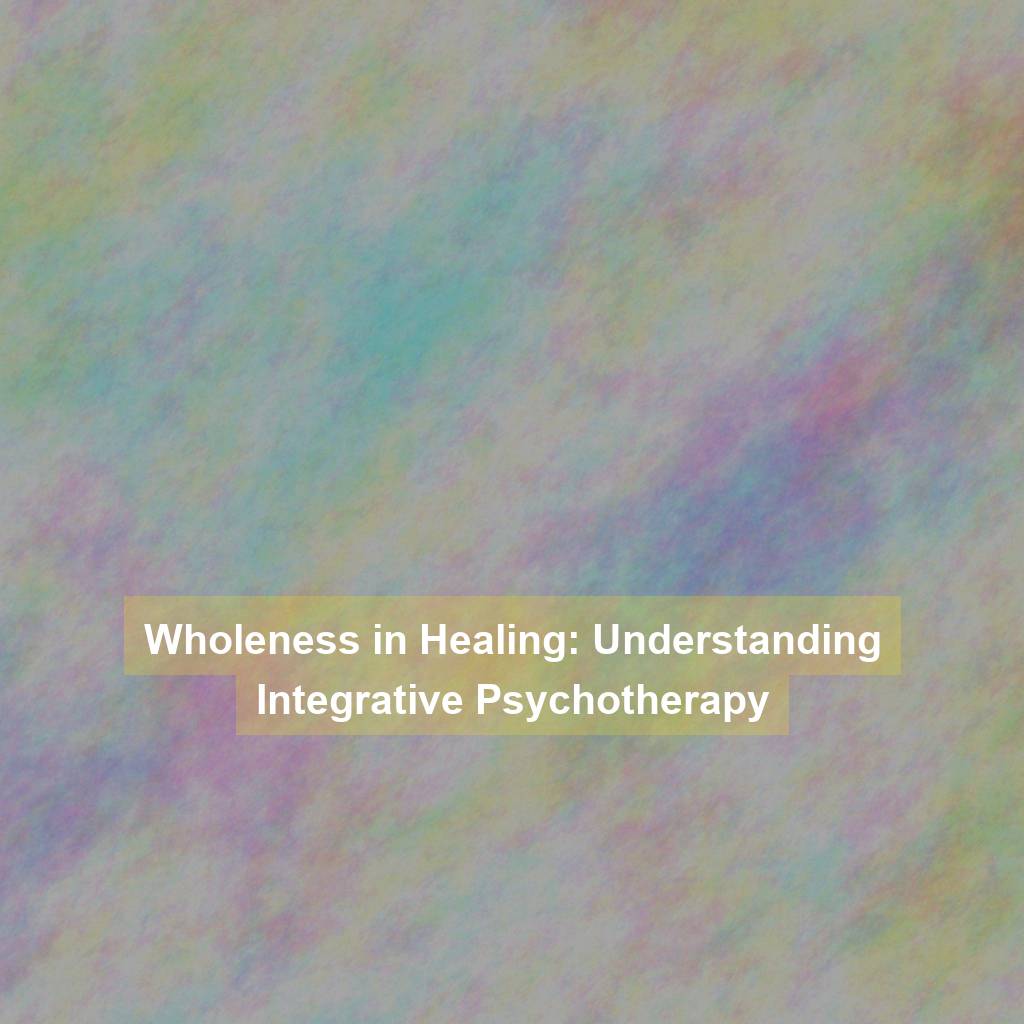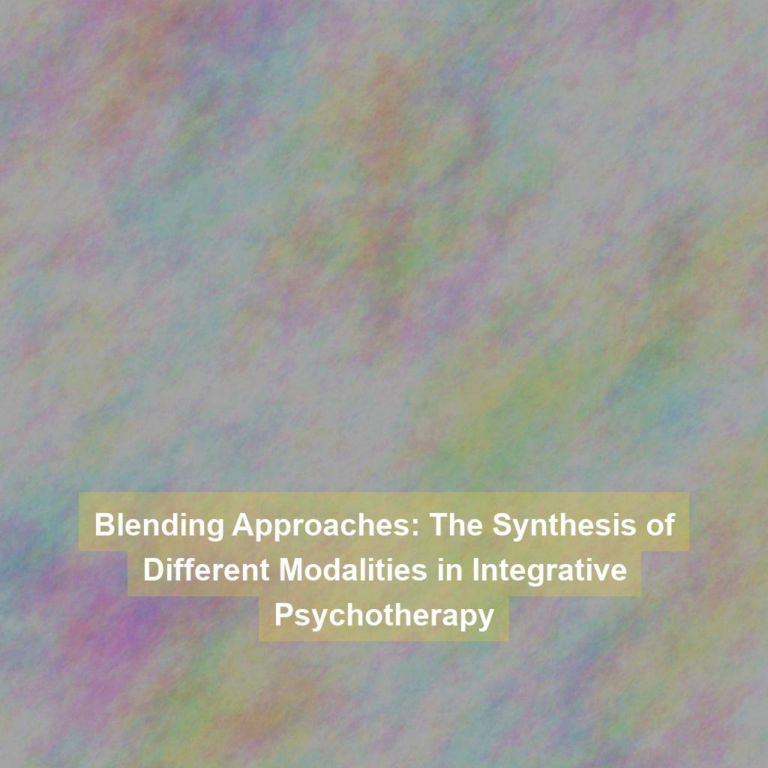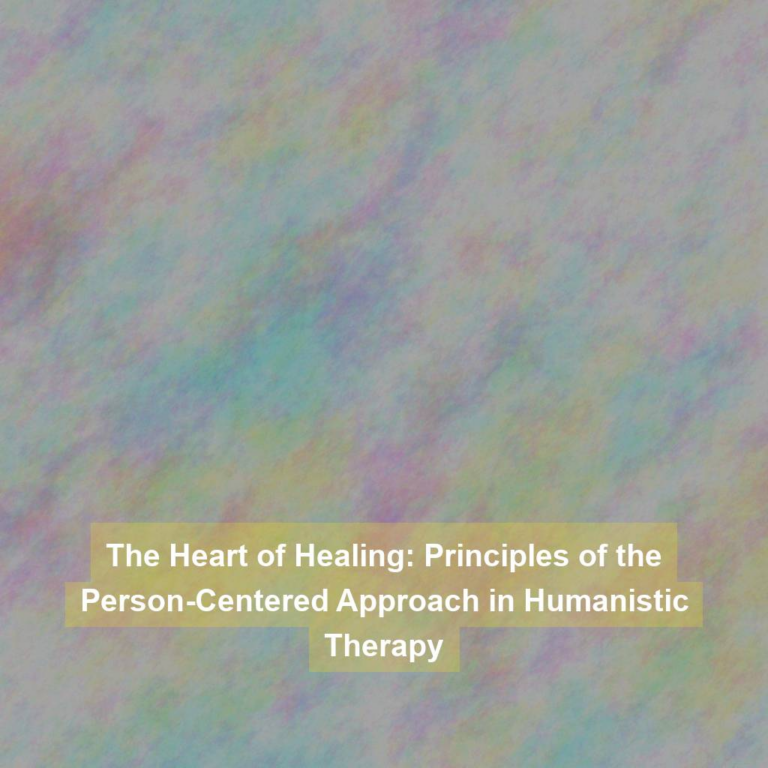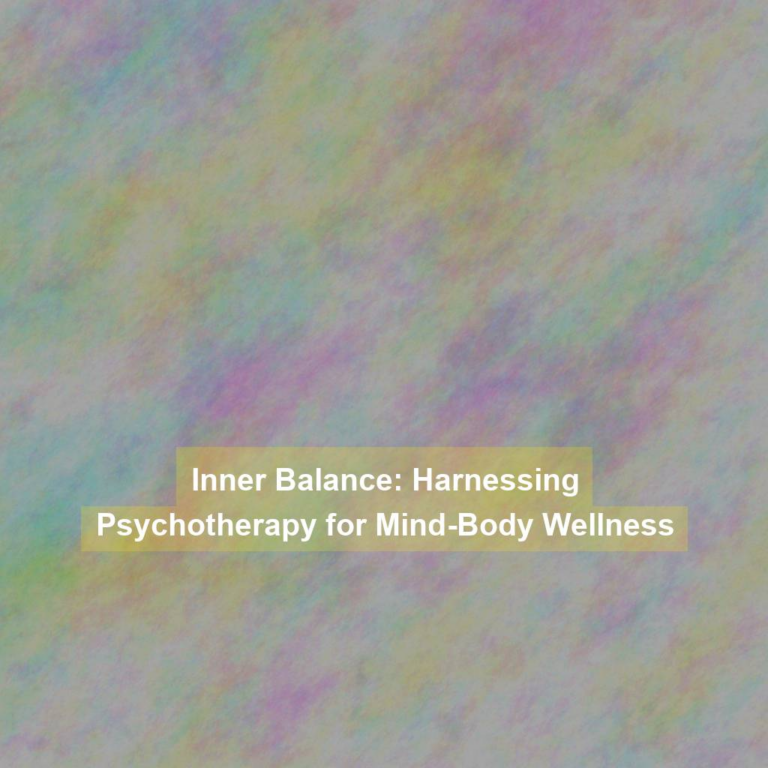You may not realize that integrative psychotherapy goes beyond traditional talk therapy to encompass the interconnectedness of mind, body, and spirit in the healing process.
Understanding the concept of wholeness in healing through integrative psychotherapy can provide a more comprehensive approach to addressing underlying issues and promoting overall well-being.
As you explore the principles and personalized approaches of integrative psychotherapy, you’ll gain insight into how this holistic perspective can lead to more effective and sustainable healing outcomes.
The Concept of Wholeness in Healing
To achieve healing and growth through integrative psychotherapy, it’s essential to understand the concept of wholeness and its impact on the therapeutic process. Wholeness refers to the integration of all aspects of an individual, including physical, emotional, mental, and spiritual dimensions. In the context of therapy, embracing wholeness means recognizing that each person is a complex and interconnected being, and that healing requires addressing all these interconnected parts.
In therapy, the concept of wholeness guides the approach to treatment. Rather than focusing solely on symptoms or specific issues, therapists strive to understand the whole person and the intricate interplay of factors contributing to their well-being. By addressing the individual as a whole, therapy can be more comprehensive and effective, leading to deeper healing and growth.
Furthermore, recognizing the concept of wholeness in healing can also empower individuals seeking therapy. It encourages them to see themselves not as a collection of fragmented parts, but as integrated beings capable of achieving balance and wellness. Embracing wholeness in therapy fosters a sense of empowerment and self-discovery, ultimately contributing to lasting and meaningful change.
Principles of Integrative Psychotherapy
The principles of integrative psychotherapy focus on incorporating various therapeutic approaches to address the diverse needs of individuals. By integrating different therapeutic modalities, such as cognitive-behavioral, psychodynamic, humanistic, and existential approaches, integrative psychotherapy aims to provide a comprehensive and personalized treatment for each client. This approach recognizes that no single therapeutic model is effective for every individual and that a flexible, tailored approach is essential for addressing the complexity of human experience.
One of the core principles of integrative psychotherapy is the acknowledgment of the individual’s unique cultural background, beliefs, and values. Therapists practicing integrative psychotherapy strive to create a therapeutic environment that respects and integrates the client’s cultural identity into the treatment process. This principle emphasizes the importance of cultural competence and sensitivity in therapy.
Another key principle is the collaborative nature of the therapeutic relationship. Integrative psychotherapy emphasizes the active involvement of the client in the therapeutic process, with the therapist and client working together as partners in the journey toward healing and growth. This collaborative approach empowers the client and fosters a sense of ownership and agency in the therapeutic process.
Addressing Interconnectedness in Healing
Acknowledging the individual’s unique cultural background and values plays a pivotal role in addressing interconnectedness in healing within integrative psychotherapy. By recognizing and respecting the diversity of cultural experiences, integrative psychotherapy can effectively address the interconnectedness of an individual’s mental, emotional, and social well-being. Your therapist will consider how your cultural background and values shape your worldview, beliefs, and coping mechanisms. This understanding allows for a more holistic approach to healing, as it acknowledges that your experiences are influenced by various interconnected factors.
Integrative psychotherapy also emphasizes the interconnectedness between your past experiences and current challenges. Your therapist will help you explore how past relationships, traumas, and societal influences may be impacting your present mental and emotional state. By addressing these interconnected factors, integrative psychotherapy aims to promote healing that considers the whole person, rather than just isolated symptoms.
Furthermore, in addressing interconnectedness in healing, integrative psychotherapy recognizes the importance of considering the impact of family dynamics, social support systems, and community influences on your well-being. Your therapist will work with you to understand how these interconnected aspects of your life can contribute to your healing journey. By acknowledging and addressing these interconnected factors, integrative psychotherapy aims to promote a more comprehensive and effective approach to healing.
Integrative Approaches for Mind-Body-Spirit
In integrative psychotherapy, you’ll explore how the interconnectedness of your mind, body, and spirit influences your overall well-being. Integrative approaches for mind-body-spirit focus on the idea that these aspects of your being are deeply interconnected, and addressing them collectively can lead to more comprehensive healing.
One approach is mindfulness-based techniques, which help you become more aware of your thoughts, emotions, and bodily sensations. By cultivating this awareness, you can better understand the impact of your mental and emotional state on your physical well-being.
Additionally, somatic experiencing, a body-centered therapy, focuses on releasing physical tension and trauma held in the body, recognizing the intricate link between emotional experiences and bodily responses.
Furthermore, incorporating spiritual practices such as meditation, yoga, or connecting with nature can nurture your spirit and provide a sense of inner peace and purpose. By integrating these approaches, you can work towards a more balanced and harmonious state of being, enhancing your overall health and well-being.
Understanding and addressing the interconnectedness of your mind, body, and spirit is fundamental in promoting holistic healing and personal growth.
Personalized Healing With Integrative Psychotherapy
Considering your unique experiences and needs, integrative psychotherapy offers personalized healing that takes into account the interconnectedness of your mind, body, and spirit. By tailoring treatment to your specific circumstances, integrative psychotherapy aims to address the root causes of your challenges and promote holistic well-being. This personalized approach involves collaborating with a therapist who considers your emotional, physical, and spiritual health in the context of your individual history and current life circumstances.
In personalized healing with integrative psychotherapy, you can expect a multifaceted treatment plan that may include traditional talk therapy, somatic experiencing, mindfulness practices, and holistic interventions such as yoga or acupuncture. Your therapist will work with you to identify the most effective combination of approaches to support your healing journey. By integrating various therapeutic modalities, the goal is to cultivate a deep understanding of your unique needs and provide you with a comprehensive toolkit for self-discovery and growth.
Furthermore, integrative psychotherapy emphasizes the importance of your active participation in the healing process, empowering you to take ownership of your well-being and make meaningful changes in all aspects of your life. This collaborative and personalized approach can lead to profound and sustainable transformation, aligning with your individual goals and values.
Conclusion
You’ve now gained a deeper understanding of integrative psychotherapy and its focus on wholeness in healing. By addressing the interconnectedness of mind, body, and spirit, integrative approaches offer personalized healing.
Embracing this holistic perspective can lead to more comprehensive and effective therapy, helping individuals to achieve balance and well-being on all levels.
So, next time you seek healing, consider the benefits of integrative psychotherapy for a more complete and integrated approach to your well-being.







